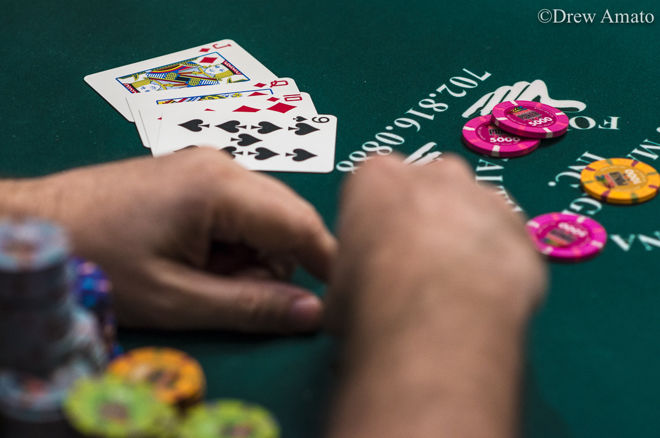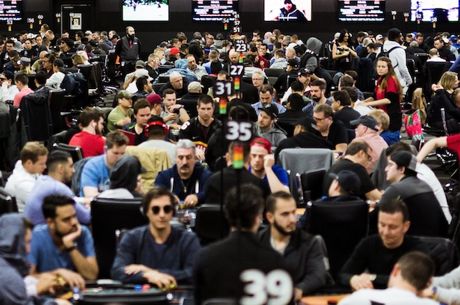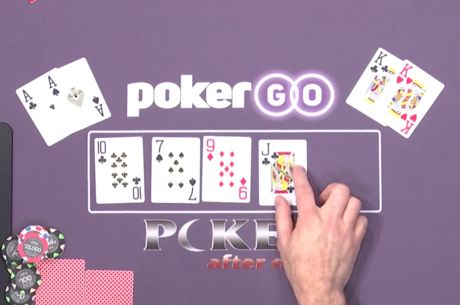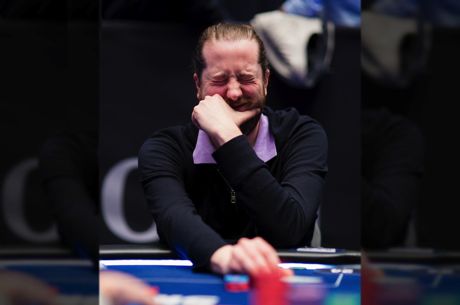Using Winning and Losing Streaks to Your Advantage

Before you sneer, if you enter into this article with an open mind I think you will agree with me before we are done. Not only do winning and losing streaks exist in poker, but you can use them to exploit your opponents and win more money.
While some may want to argue winning and losing streaks don't exist, we've all experienced them. Haven't you ever won a few hands in a row? Haven't you seen someone else have an amazing string of winning sessions? Haven't you ever run badly for a whole session? A week? A month? Longer?
Of course you have. Those are streaks.
Streaks exist as a matter of statistical clumping. Flip a coin a hundred times. Though you may end up with something close to 50 percent heads and 50 percent tails, you will almost surely also have three, four, five or more flips in a row that are all heads or all tails. Those are streaks. And they occur in any endeavor that involves chance �� coin flips, roulette turns, crap rolls, and poker hands.
But you already knew that. You knew there were winning streaks and losing streaks. You just didn't know they were exploitable. Okay. Read on.
Gambling systems that claim otherwise notwithstanding, there is no way, in a truly random game, to know whether a streak is going to start, continue or end, no matter what the past results are.
Though some punters may be convinced otherwise, it is foolish to "clock" a roulette wheel to see how many reds or blacks in a row there have been, or to keep track of how many banks or players in a row there have been in baccarat. Though you might think that after ten reds in a row, black is "due," the wheel is no more likely to produce another red or a black on the next spin.
That sort of thinking about streaks is deluded. But here's the amazing thing about streaks that you might not know. In poker, they are exploitable!
They're exploitable because your opponents may not understand that streaks are not predictable. And they are exploitable because your opponent might think that your winning or losing ways (or his own) are the result of something other than randomness.
Here's what I've noticed.
When I'm winning, certain of my opponents think that I am "getting lucky," and will be less likely to play aggressively against me or call my aggressive bets. Meanwhile when I am losing, some think that I am "getting unlucky" and will be more likely to play aggressively against me, and more likely to call my bets (especially early on in the action).
In short, my winning streaks and losing streaks, though unpredictable and unexploitable from the perspective of knowing whether or not I'm bound to get good or bad hands in the future, will occasionally produce reactions from certain opponents that are predictable and, thereby, exploitable.
I'll give you an example.
I was playing $20/$40 seven-card stud at Foxwoods. The game had five regulars, me, plus a seventh player I didn't recognize. Four of the five regulars were "A-B-C" players, and extremely tight. The fifth was relatively loose.
Having sized up the table this way, I decided early on to vary my typical play by being much more aggressive than I normally am in order to take advantage of what I perceived to be the relative tightness of the line-up.
A hand came up in which an early position player �� the relatively loose regular �� with an exposed king completed the bet to $20. I had an ace showing (and garbage underneath) and reraised. The king called me.
I continued with my bluff all the way until the river, when I fortunately caught another ace, luckily making two pair with another low pair I had caught along the way. He had kings up and I won. I won a couple of other hands shortly thereafter, neither of which went to showdown.
On the next hand, against the player I had beaten with aces up, he completed with a jack and I reraised with a ten (having a pair of tens with a queen in the hole). My opponent literally said "I can't beat you today" and folded, face up, his JxAx / Jx. Though he was clearly ahead, he backed down because he was fearful of my lucky winning streak.
I have seen this type of reaction a myriad of times before, from otherwise completely solid players, in both hold'em and in stud. Though players may know better intellectually, in the heat of the game especially, they are prone to change their behavior based on whether they perceive their opponents to have been "lucky" or "unlucky" according to their recent streaks of winning or losing.
I've also noticed other players �� again good, solid players �� change their own behavior when they have had a particularly bad or good string of luck. Some players, after being outdrawn a bunch of hands in a row, become "gun-shy" and are less willing to bet aggressively or call, even in hands when they are in the lead and good strategy calls for them to be aggressive. By being attuned to the "losing streak" they are on, I am able to exploit this fearfulness in their play and take pots away from them.
Accordingly, I always encourage my opponents to think when I am winning that I have been lucky. In that respect, I follow the advice of poker theorist and writer Mike Caro to try and create the impression that a "winning aura" surrounds me at the table.
If others think I am just "getting lucky," I encourage them. And, if I can subtly do so, I commiserate with them and reinforce their impression when they think they are "running bad" or just can't catch a break.
Many players imagine themselves to play in a strictly rational manner. But even if their self-assessment is completely accurate, some of these same players make the mistake of imagining that all other players are always playing with that same degree of rationality.
In so doing they miss many opportunities to exploit the irrational and even superstitious inclinations of their opponents. And missing those opportunities is just... irrational!
Ashley Adams has been playing poker for 50 years and writing about it since 2000. He is the author of hundreds of articles and two books, Winning 7-Card Stud (Kensington 2003) and Winning No-Limit Hold'em (Lighthouse 2012). He is also the host of poker radio show House of Cards. See www.houseofcardsradio.com for broadcast times, stations, and podcasts.









